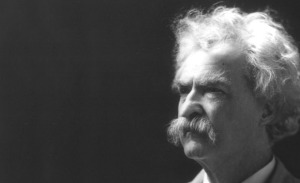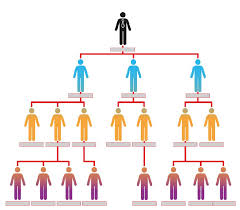Ethical Culture: Action Speaks Louder Than Words
 “Action speaks louder than words but not nearly as often” – Mark Twain
“Action speaks louder than words but not nearly as often” – Mark Twain
If you are too busy to read my posting, all I ask is that you read the Mark Twain quote and apply the message to creating an ethical culture.
As I always say, Mark Twain would have been a star Chief Compliance Officer. He was an artist with words, and he used a minimal number of words to communicate powerful messages.
We all know that communicating ethics and compliance messages, even repeatedly and from the CEO and senior management, coupled with ethics training, is an important strategy. But words and messages have limits.
When it comes to creating and promoting an ethical culture, actions speak much louder than words. Managers and employees look for specific behaviors by their leaders that reinforce and demonstrate ethical conduct. These actions, as recounted within an organization, can create a powerful force for promoting an ethical culture.
There has been a lot of interesting research conducted on exactly how to define an promote an “ethical culture.” See Jondle, Ardichvili, and Mitchell 2013 Here.
Most companies focus on procedural frameworks and training programs to raise ethical awareness of employees. To this end, companies adopt codes of ethical conduct, and promote reporting of ethical violations.
This is all well and good, but according to researchers, more is needed to promote “individual moral development.” In other words, a company has to instill in its employees a culture of “doing the right thing” so that individuals will conform to that norm or value when faced with difficult ethical choices.
To address individual ethical values, researchers have pointed to the importance of creating an ethical social environment through the use of norms, values, heroes and role models, organizational stories and historical anecdotes. While this listing is a mouthful, it all boils down to fostering internal communications among employees that recount stories, anecdotes and observations about their leaders. These informal communications reinforce a culture and promote the idea of social norms and values necessary for a culture of ethics.
From a practical perspective, I frequently hear from company employees’ stories about their CEO’s commitment to ethics and compliance and how he or she demonstrates such integrity. Often, these stories take on a life of their own, especially when a CEO or senior executive dramatically makes the point through his or her actions.
A CEO who is committed to ethics and compliance, and not only repeats that message in his or her communications, but demonstrates his or her commitment through actions will create a number of stories and anecdotes recounting his or her actions and ethical values.
 This internal communications among managers and employees about the actions of the senior executives has a very powerful effect in an organization. These informal communications reinforce the more structured messages and programs designed to create and promote a culture of ethics — training, code of conduct, reporting of violations and other programs or procedures.
This internal communications among managers and employees about the actions of the senior executives has a very powerful effect in an organization. These informal communications reinforce the more structured messages and programs designed to create and promote a culture of ethics — training, code of conduct, reporting of violations and other programs or procedures.
The converse is also true – a CEO that makes no commitment to ethics and compliance undermines the value of the structured program to promote a company’s ethical culture. The absence of a tone at the top is a real missed opportunity. In some cases, it is a death knell for a compliance program because the CCO will have little chance for successfully creating an ethical culture.
The bottom line is that a company’s culture is created by a variety of forces – both formal and informal. At its heart, a culture must reflect the basic assumptions and beliefs that are shared among members of an organization. That can be the result of formal statements, codes of conduct and training programs, but without actions and conduct to reinforce these messages, the formal elements are likely to prove insufficient.















